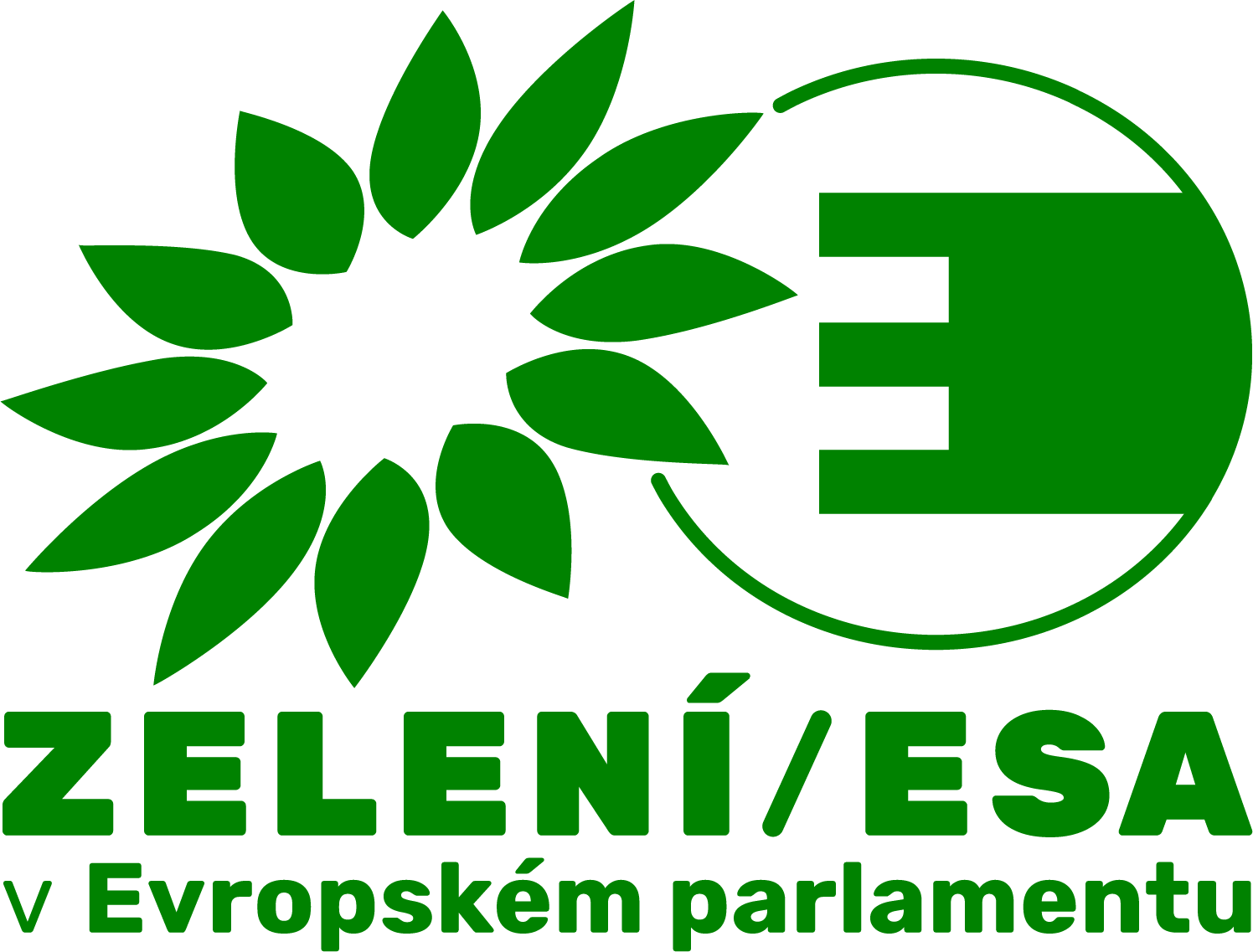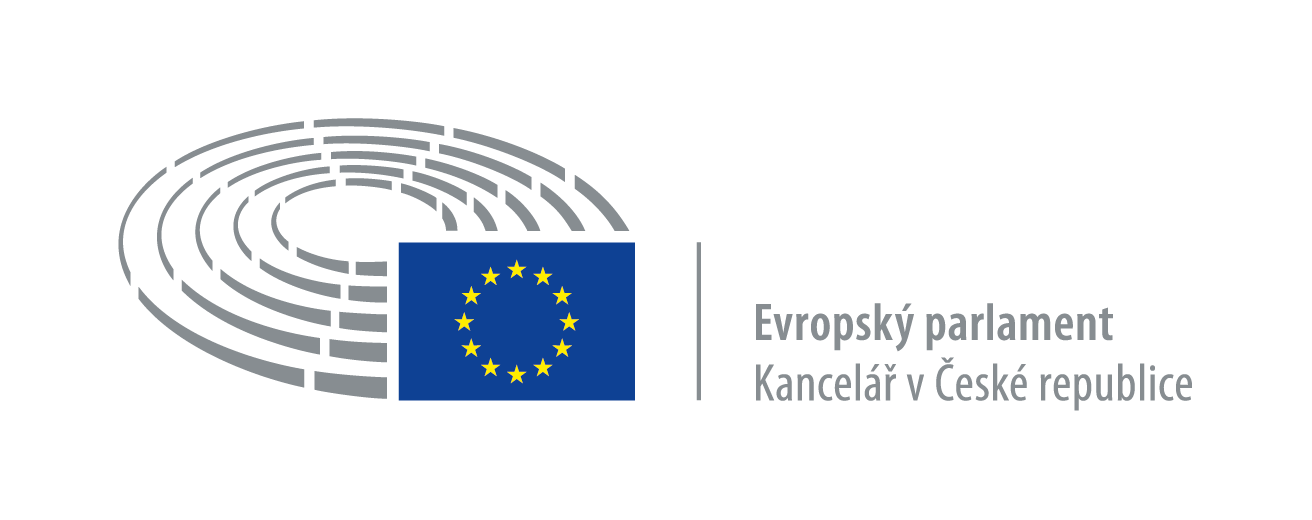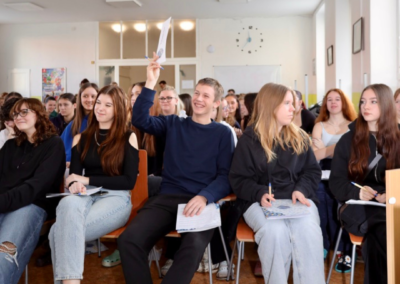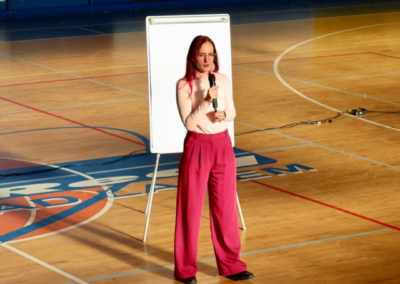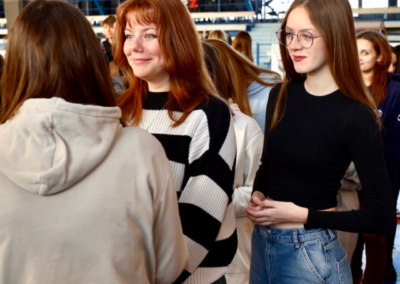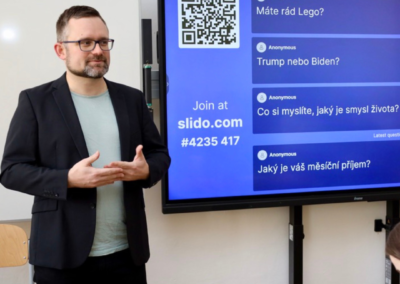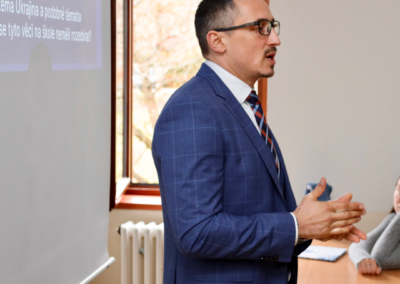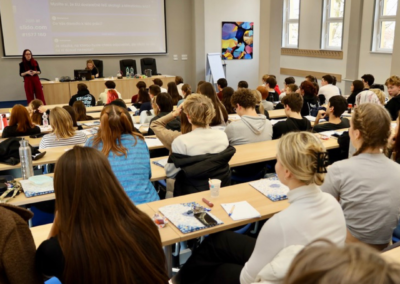The Ukraine Crisis and Me, the European
Project Overview
2023 – 2024
High Schools Across the Czech Republic
In 2023 and 2024, our team organized a series of one-day projects titled ‘The Ukraine Crisis and Me, the European’ at high schools across the Czech Republic. These projects aimed to address the ongoing Russian aggression in Ukraine and its impact on the Czech student community and the broader public. Additionally, the projects strived to highlight the added value of the Czech Republic’s membership in the European Union, not only during times of conflict in Ukraine, foster European identity among youth, increase awareness of the actual affairs at the level of EU institutions, and motivate young people to become active and engaged in public affairs, while providing them with the opportunity to engage in discussions with decision-makers. The project days also aimed at developing participants‘ soft skills, particularly enhancing critical and analytical thinking, thereby increasing youth resilience against disinformation.
Each project day began with an introduction to Young Diplomats and the project’s partners, particularly the Erasmus+ program. Participants then engaged in interactive activities, expressing their views on issues related to the situation in Ukraine and the European Union by positioning themselves on an opinion scale and explaining their positions. The issues addressed included, for instance, how frequently participants followed news about Ukraine or whether they had encountered misinformation related to the war in Ukraine. Subsequently, participants completed a quiz that provided us with anonymous feedback on their opinions and perceptions of the conflict in Ukraine.
After a short break, the program shifted to a part focused on disinformation. Participants were introduced to the theory of disinformation and fake news through a concise presentation that also covered detection methods and strategies for recognizing misleading content. Interactive activities further illustrated how information can be distorted in communication. In closing participants took a quiz to assess their understanding and reinforce their newly acquired knowledge. Afterwards participants attended an interactive presentation on the European Union and its institutions. This part provided factual information about the EU and its functioning, along with a few interesting facts, helping participants to either learn or refresh their knowledge.
Following the presentation, participants were briefed on the rules of procedure for the simulated European Parliament session, which then commenced. Prior to the project day, participants themselves selected the agenda through online surveys. To prepare for the simulation, each participant received a project brochure containing key summaries of their chosen agenda, ensuring that everyone was well-prepared and the proceedings were as realistic as possible. The most commonly debated topic was „Combating Disinformation“. After the simulation, participants engaged in a discussion with a guest decision-maker, providing an opportunity to ask questions related to the situation in Ukraine, the European Union, or any other area of interest. The day concluded with a comprehensive evaluation of the project and the recognition of the top participants, who were awarded small prizes for their active engagement.
We extend our sincere thanks to the Erasmus+ program and all our distinguished guests for their generous support of the project.
Guests
Markéta Gregorová – Member of the European Parliament
Veronika Vrecionová – Member of the European Parliament
Mikuláš Peksa – Member of the European Parliament
Marcel Kolaja – Member of the European Parliament
Jaroslav Bžoch – Member of the Chamber of Deputies, Parliament of the Czech Republic
Schools Visited
Partners

